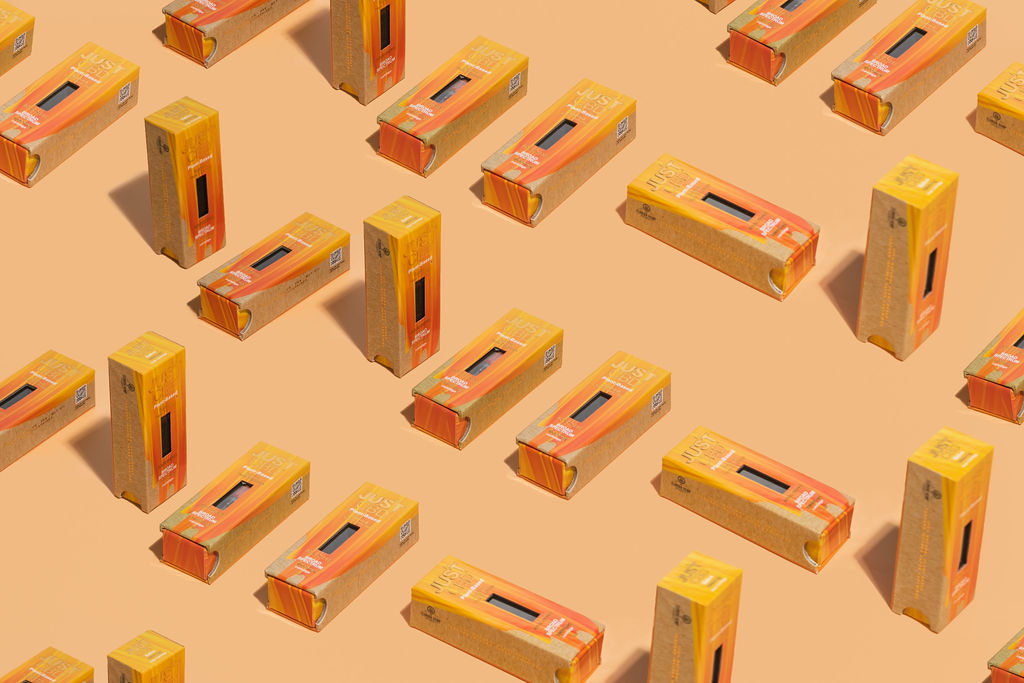CBD For Insomnia: Does It Really Work For Better Sleep?
Understanding CBD and Its Potential Benefits
CBD, or cannabidiol, has gained significant attention in recent years for its potential therapeutic benefits. Derived from the cannabis plant, CBD is a non-psychoactive compound that does not produce the “high” associated with THC. Research suggests that CBD may interact with the body’s endocannabinoid system, which plays a role in regulating various functions, including sleep.
What is CBD?
CBD oil has become increasingly popular as a natural remedy for various conditions, including insomnia. Proponents claim that it can promote relaxation and improve sleep quality. CBD is a compound found in the cannabis plant, but unlike THC, it doesn’t cause psychoactive effects. Instead, it interacts with the body’s endocannabinoid system, which regulates several physiological processes, including sleep-wake cycles.
How Does CBD Interact with the Body?
CBD oil has become increasingly popular as a natural remedy for insomnia. Proponents claim that it can promote relaxation and improve sleep quality.
While more research is needed to fully understand CBD’s effects on sleep, some studies suggest that it may have beneficial properties for individuals struggling with insomnia. CBD is thought to interact with the body’s endocannabinoid system, which plays a role in regulating sleep-wake cycles. By modulating this system, CBD may help promote relaxation and reduce anxiety, potentially leading to better sleep.
Potential Benefits of CBD for Sleep
CBD oil has gained popularity as a natural remedy for insomnia, with proponents claiming it can promote relaxation and improve sleep quality. Unlike THC, the psychoactive compound found in marijuana, CBD does not cause a “high”. Instead, it interacts with the body’s endocannabinoid system, which plays a role in regulating various physiological processes, including sleep-wake cycles.
While more research is needed to fully understand CBD’s effects on sleep, some studies suggest potential benefits for individuals with insomnia. CBD is thought to interact with receptors in the endocannabinoid system, potentially influencing neurotransmitters involved in sleep regulation. This modulation could lead to reduced anxiety and improved sleep quality.
The Science Behind CBD and Insomnia
CBD oil has surged in popularity as a natural solution for insomnia, with many touting its ability to promote relaxation and enhance sleep quality. Unlike THC, the psychoactive component of marijuana, CBD does not induce a “high.” Instead, it interacts with the body’s endocannabinoid system, a complex network that regulates various physiological processes, including sleep-wake cycles.
Research on CBD and Sleep Quality
CBD oil has surged in popularity as a natural solution for insomnia, with many touting its ability to promote relaxation and enhance sleep quality. Unlike THC, the psychoactive component of marijuana, CBD does not induce a “high.” Instead, it interacts with the body’s endocannabinoid system, a complex network that regulates various physiological processes, including sleep-wake cycles.
While more research is needed to fully understand CBD’s effects on sleep, some studies suggest potential benefits for individuals with insomnia.
- CBD is thought to interact with receptors in the endocannabinoid system, potentially influencing neurotransmitters involved in sleep regulation. This modulation could lead to reduced anxiety and improved sleep quality.
- Some research indicates that CBD may help reduce the time it takes to fall asleep and improve overall sleep duration in individuals with insomnia.
- Preclinical studies in animals have shown promising results, suggesting that CBD can promote relaxation and reduce anxiety, which are often contributing factors to insomnia.
Possible Mechanisms of Action for CBD in Treating Insomnia
CBD is believed to exert its potential sleep-promoting effects through interactions with the body’s endocannabinoid system (ECS). This complex system plays a crucial role in regulating various physiological processes, including sleep-wake cycles, mood, and pain perception.
The ECS comprises specialized receptors found throughout the body, including the brain. CBD is thought to interact with these receptors, particularly those known as CB1 and CB2 receptors, which are involved in modulating neuronal activity related to sleep.
By binding to these receptors, CBD may influence neurotransmitter release, impacting processes that contribute to sleep onset and maintenance. For example, it might modulate the release of GABA, an inhibitory neurotransmitter that promotes relaxation and calmness, thereby potentially aiding in sleep induction.
Additionally, CBD may indirectly affect sleep by reducing anxiety and stress. These emotional states are known contributors to insomnia. CBD’s potential anxiolytic effects could create a more conducive environment for restful sleep.
Factors to Consider When Using CBD for Insomnia
Considering the use of CBD oil for insomnia requires careful evaluation. Several factors should be taken into account, including individual health conditions, medication interactions, dosage, and product quality.
Dosage and Administration Methods
Before incorporating CBD into your sleep routine, it’s essential to consult with a healthcare professional. They can help assess potential interactions with existing medications or underlying health conditions.
Dosage is crucial when using CBD for insomnia. Starting with a low dose and gradually increasing it as needed allows you to determine the optimal amount for your individual response. Typical starting doses for sleep range from 5 to 10 milligrams, but this may vary based on factors like body weight, metabolism, and severity of insomnia.
CBD is available in various forms, including oils, capsules, gummies, and topical creams. Oral administration (oils, capsules) is commonly used for addressing sleep issues.
Choosing a high-quality CBD product from a reputable source is essential to ensure purity and effectiveness. Look for products that have been third-party tested for potency and contaminants.
Potential Side Effects and Interactions
Before using CBD oil for insomnia, it’s crucial to understand its potential side effects and interactions.
While generally well-tolerated, CBD can cause some side effects in certain individuals. These may include drowsiness, dry mouth, diarrhea, and changes in appetite. It’s important to start with a low dose and gradually increase it as needed to minimize the risk of adverse effects.
CBD can interact with certain medications, including those metabolized by the cytochrome P450 enzyme system. This interaction could potentially alter the effectiveness or increase the side effects of these medications. It’s essential to consult with a healthcare professional before using CBD if you are taking any prescription drugs.
Individuals with pre-existing medical conditions, such as liver disease or epilepsy, should exercise caution when using CBD and seek guidance from their doctor.
Quality and Legality of CBD Products
Considering the use of CBD oil for insomnia requires careful evaluation. Several factors should be taken into account, including individual health conditions, medication interactions, dosage, and product quality.
Before incorporating CBD into your sleep routine, it’s essential to consult with a healthcare professional. They can help assess potential interactions with existing medications or underlying health conditions.
Dosage is crucial when using CBD for insomnia. Starting with a low dose and gradually increasing it as needed allows you to determine the optimal amount for your individual response. Typical starting doses for sleep range from 5 to 10 milligrams, but this may vary based on factors like body weight, metabolism, and severity of insomnia.
CBD is available in various forms, including oils, capsules, gummies, and topical creams. Oral administration (oils, capsules) is commonly used for addressing sleep issues.
Choosing a high-quality CBD product from a reputable source is essential to ensure purity and effectiveness. Look for products that have been third-party tested for potency and contaminants.
When evaluating CBD products, it’s important to pay attention to the quality and legality of the source.
Look for products that have undergone independent lab testing by a reputable third-party organization. These tests should confirm the concentration of CBD in the product and ensure the absence of harmful contaminants such as pesticides, heavy metals, or solvents.
Legality surrounding CBD can vary depending on your location. In some regions, CBD derived from hemp with less than 0.3% THC is legal, while products derived from marijuana may be restricted. It’s crucial to research and understand the legal status of CBD in your area.
Tips for Using CBD Effectively for Insomnia
CBD oil has become increasingly popular as a natural remedy for insomnia, with proponents claiming it can promote relaxation and improve sleep quality. Unlike THC, the psychoactive component of marijuana, CBD does not induce a “high.” Instead, it interacts with the body’s endocannabinoid system, a complex network that regulates various physiological processes, including sleep-wake cycles.
While more research is needed to fully understand CBD’s effects on sleep, some studies suggest potential benefits for individuals with insomnia.
Choosing the Right CBD Product
When choosing a CBD product for insomnia, consider the following factors:
- Extraction Method: Look for products using CO2 extraction as it is considered the safest and most effective method for preserving CBD’s potency and purity.
- Potency: Determine the desired CBD concentration based on your individual needs and tolerance. Start with a lower dose and gradually increase it as needed.
- Formulation: Choose a form that suits your preference, such as oils, capsules, gummies, or topical creams. Oils are commonly used for addressing sleep issues.
- Third-Party Testing: Ensure the product has been tested by an independent laboratory to verify its CBD content and confirm the absence of contaminants.
By carefully considering these factors, you can select a high-quality CBD product that may support your sleep quality.
Establishing a Consistent Routine
To use CBD effectively for insomnia, establishing a consistent routine is crucial.

Go to bed and wake up around the same time each day, even on weekends, to regulate your body’s natural sleep-wake cycle.
Create a relaxing bedtime routine that signals to your body it’s time to sleep. This could include taking a warm bath, reading a book, or listening to calming music.
Ensure your bedroom is dark, quiet, and cool, as these factors contribute to better sleep.
Avoid caffeine and alcohol before bedtime, as they can interfere with sleep quality.
Other Lifestyle Factors for Better Sleep
CBD oil has gained popularity as a natural remedy for insomnia, with many touting its ability to promote relaxation and enhance sleep quality. Unlike THC, the psychoactive component of marijuana, CBD does not induce a “high.” Instead, it interacts with the body’s endocannabinoid system, a complex network that regulates various physiological processes, including sleep-wake cycles.
While more research is needed to fully understand CBD’s effects on sleep, some studies suggest potential benefits for individuals with insomnia.
- CBD is thought to interact with receptors in the endocannabinoid system, potentially influencing neurotransmitters involved in sleep regulation. This modulation could lead to reduced anxiety and improved sleep quality.
- Some research indicates that CBD may help reduce the time it takes to fall asleep and improve overall sleep duration in individuals with insomnia.
- Preclinical studies in animals have shown promising results, suggesting that CBD can promote relaxation and reduce anxiety, which are often contributing factors to insomnia.
To use CBD effectively for insomnia, establishing a consistent routine is crucial.
Go to bed and wake up around the same time each day, even on weekends, to regulate your body’s natural sleep-wake cycle.
Create a relaxing bedtime routine that signals to your body it’s time to sleep. This could include taking a warm bath, reading a book, or listening to calming music.
Ensure your bedroom is dark, quiet, and cool, as these factors contribute to better sleep.
Avoid caffeine and alcohol before bedtime, as they can interfere with sleep quality.
Real-World Experiences with CBD for Insomnia
CBD oil has surged in popularity as a natural solution for insomnia, with many touting its ability to promote relaxation and enhance sleep quality. Unlike THC, the psychoactive component of marijuana, CBD does not induce a “high.” Instead, it interacts with the body’s endocannabinoid system, a complex network that regulates various physiological processes, including sleep-wake cycles.

While more research is needed to fully understand CBD’s effects on sleep, some studies suggest potential benefits for individuals with insomnia.
User Testimonials and Case Studies
Many people who experience insomnia turn to CBD oil as a natural remedy, and anecdotal evidence suggests it can be helpful. User testimonials often describe improved sleep quality, reduced anxiety, and less time spent tossing and turning.
While scientific research is ongoing, numerous case studies have explored the potential benefits of CBD for sleep issues. A study published in the European Journal of Pain found that CBD significantly reduced pain and improved sleep quality in individuals with chronic pain. Another study, published in the journal Cannabis & Cannabinoid Research, showed that CBD decreased anxiety and insomnia symptoms in patients with generalized anxiety disorder.
It’s important to note that individual experiences with CBD can vary, and what works for one person may not work for another. Factors like dosage, product quality, and individual physiology can influence the effectiveness of CBD for sleep.
Long-Term Effects and Sustainability of CBD Use for Sleep
CBD oil has gained significant traction as a natural remedy for insomnia, with many users reporting improved sleep quality and reduced anxiety. Unlike THC, the psychoactive component found in marijuana, CBD does not induce a “high.” Instead, it interacts with the body’s endocannabinoid system (ECS), which plays a crucial role in regulating various physiological processes, including sleep.
While research is still ongoing to fully understand CBD’s effects on sleep, several studies suggest potential benefits for individuals struggling with insomnia.
CBD is thought to work by interacting with receptors in the ECS, influencing neurotransmitters involved in sleep regulation. This modulation could lead to reduced anxiety and improved sleep quality.
- Preclinical Studies: Research on animals indicates that CBD can promote relaxation and reduce anxiety, which are often contributing factors to insomnia.
- Human Studies: Some human studies have shown that CBD may help shorten the time it takes to fall asleep and improve overall sleep duration in individuals with insomnia.
- Case Studies: Numerous case studies have explored the potential benefits of CBD for sleep issues, with many reporting positive outcomes.
Despite promising evidence, it is crucial to approach CBD use with caution and consult with a healthcare professional before incorporating it into your routine.
Start with a low dose and gradually increase as needed to determine the optimal amount for you. Pay attention to any potential side effects or interactions with other medications.
Choosing high-quality products from reputable sources is essential to ensure purity and effectiveness. Look for third-party lab testing to confirm CBD content and the absence of contaminants.
Remember that individual experiences with CBD can vary, and what works for one person may not work for another. Consistency and patience are key when using CBD for sleep improvement.
Order CBD oil for deep relaxation
- The Best Refillable Cartridges For Vista Edge Vape - December 11, 2025
- THC Seltzers With The Most Potent Kick - December 6, 2025
- THC Beverages That Go With Pizza - December 3, 2025
